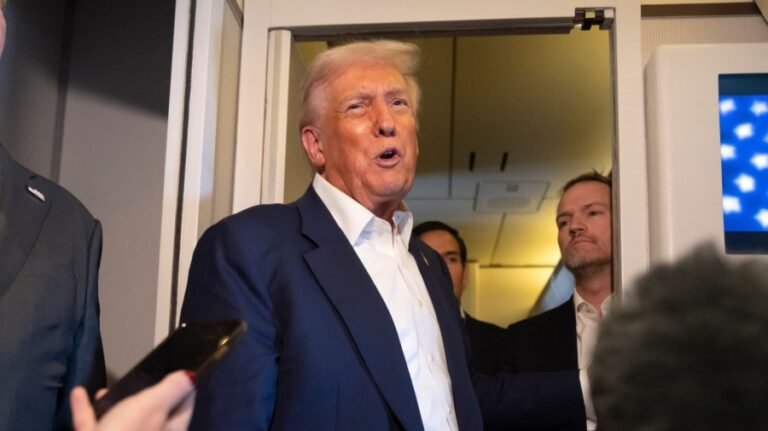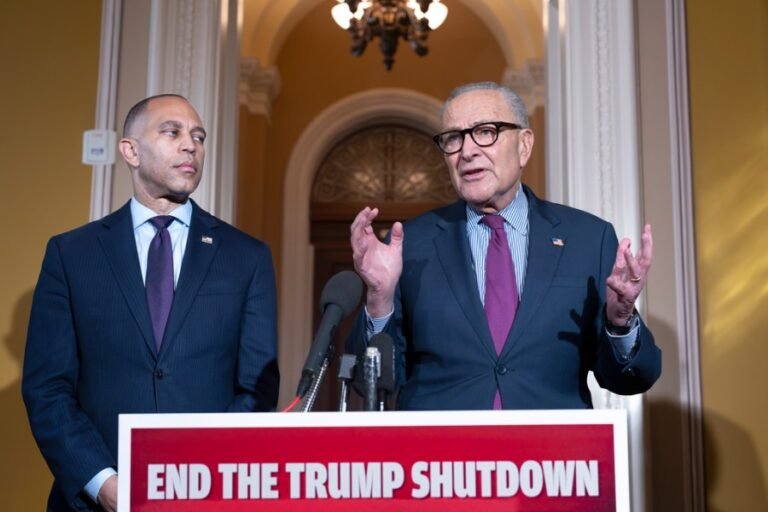
Weeks into a “pause” on new tariffs, in addition to wondering what happens next, it’s a good time to look at the bigger picture. The past few months have felt like a whirlwind — an unrelenting cycle of executive orders, reversals and other sweeping policy declarations that have left many analysts scrambling to recalibrate their opinions and expectations.
While understanding single policy moves is important, looking through a longer historical lens is instructive about this moment. It reveals a pattern: a growing disregard for consensus economic views, especially around trade. Due partly to common misperceptions about the economy, it will probably continue even as the public and markets get past their displeasure over this month’s trade drama.
It’s not unusual for populist voices to eagerly cast off general and basic economic ideas, or for economists to respond with understandable frustration in defense of tried-and-true principles. What is unusual is that a fact- and experience-based economic consensus now seems to matter so little.
Throughout history, we’ve seen this play out. In his book “The Midas Paradox,” Scott Sumner reports that during the debates about the Tariff Act of 1930, better known as Smoot-Hawley, there was strong opposition from the public, the press and the business community.
In fact, 1,028 economists signed a document urging President Hoover not to approve the legislation. They noted that a “tariff war does not furnish good soil for the growth of world peace.” That caution is good now as it was then.
To be sure, many scholars (my colleagues Tyler Cowen, David Beckworth and Veronique de Rugy, among them) have provided insightful reviews of the economic implications of the new tariff regime. From left and right, there’s deep agreement that these tariffs will lead to negative consequences for the economy.
But beyond its economic benefits, trade has long been considered a vehicle for peace. Enlightenment thinkers like Adam Smith, Immanuel Kant and, most notably, Montesquieu, saw commerce not only as an economic necessity but as a moral force. This is the idea of doux commerce — the “gentle commerce” that softens manners, tempers conflict and encourages cooperation among nations.
This civilizing force of trade now hangs in the balance. The turn toward adversarial economic nationalism risks undermining the very norms of cooperation that have underpinned decades of relative global stability. Uncertainty lies not just in the economic costs of tariffs, but in how many harmonious interactions between nations will be affected.
How did we get here?
Loss of manufacturing jobs is often invoked as a reason for imposing tariffs to “bring those jobs back.” Yet as economists like Alex Tabarrok point out, the United States remains a “manufacturing powerhouse,” annually generating roughly $2.5 trillion in value-added manufacturing output.
The main driver of the decline in manufacturing jobs isn’t foreign competition, but rather automation, which enables us to produce more with fewer workers. Keep in mind that manufacturing employment as a share of total employment began its steady fall in the mid-1950s.
Income mobility, too, is a concern. A widely cited study by economist Raj Chetty and colleagues found that only about 50 percent of children born in the 1980s earn more than their parents did, compared to 90 percent of those born in 1940. On the surface, it can look like the classical liberal ideas behind free trade aren’t working for new generations.
Yet scholars like Russ Roberts have urged caution in how we interpret such trends. The raw numbers don’t capture changes in household size, benefits, taxes or improvements in quality of life through technology. In other words, the American Dream may look different, but it’s not as bleak as statistics alone can suggest.
Still, perception matters. When progress no longer feels attainable, even if reality is more nuanced, faith in the system begins to erode, and a rallying cry for “doing something” begins to drown out more cautious voices. However, tariffs cannot fix all these challenges and may, in fact, make them worse.
And what if more cautious voices carried the day?
According to a recent survey by the Cato Institute, 63 percent of Americans “want to increase trade with other nations.” Sixty-six percent say global trade is “good for the economy” and “75 percent are concerned about tariffs raising the prices of products they buy at the store.” Hence, a majority of Americans still understand that trading with other nations is a net positive.
This moment is about more than tariffs or political frustration. It reflects a deeper tension between perception and policy, between the urge to act and the need to understand.
Disillusionment with expertise has led to reactive decisions that overlook long-term consequences. Durable solutions require a steadier approach.
Rather than quick fixes, we need policy grounded in evidence, shaped by the history of open markets and delivered with commitment to human flourishing. That’s what will sustain economic resilience and global cooperation moving forward.
Benjamin Klutsey is the executive director of the Mercatus Center at George Mason University.


